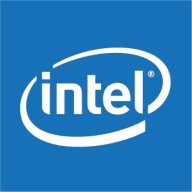

Microsoft Azure Machine Learning Studio and OpenVINO compete in the machine learning and AI domain. Azure Machine Learning Studio tends to have the upper hand in integrated services and scalability while OpenVINO focuses on optimizing AI models on Intel hardware.
Features: Microsoft Azure Machine Learning Studio provides an end-to-end environment for machine learning models, including a drag-and-drop interface, automated machine learning, and integrated MLOps capabilities. OpenVINO offers model optimization and deployment specifically on Intel hardware, with support for deep learning models and computer vision tasks, and features heterogeneous execution.
Ease Of Deployment and Customer Service: Microsoft Azure Machine Learning Studio simplifies deployment with cloud-based automation tools and has extensive documentation, offering a seamless deployment experience due to strong customer support. OpenVINO requires specific knowledge of Intel hardware for deployment, supported by a strong community and detailed technical resources.
Pricing and ROI: Microsoft Azure Machine Learning Studio might involve significant setup costs but offers scalable pricing options for good ROI if managed well. OpenVINO is a cost-effective solution as it is open-source, with minimal setup costs, though ROI depends on Intel-based hardware use and model optimization efficiencies. Azure often provides more predictable costs, while OpenVINO is cost-efficient for specific hardware scenarios.
| Product | Market Share (%) |
|---|---|
| Microsoft Azure Machine Learning Studio | 3.5% |
| OpenVINO | 1.8% |
| Other | 94.7% |

| Company Size | Count |
|---|---|
| Small Business | 23 |
| Midsize Enterprise | 6 |
| Large Enterprise | 30 |
Azure Machine Learning is a cloud predictive analytics service that makes it possible to quickly create and deploy predictive models as analytics solutions.
It has everything you need to create complete predictive analytics solutions in the cloud, from a large algorithm library, to a studio for building models, to an easy way to deploy your model as a web service. Quickly create, test, operationalize, and manage predictive models.
Microsoft Azure Machine Learning Will Help You:
With Microsoft Azure Machine Learning You Can:
Microsoft Azure Machine Learning Features:
Microsoft Azure Machine Learning Benefits:
Reviews from Real Users:
"The ability to do the templating and be able to transfer it so that I can easily do multiple types of models and data mining is a valuable aspect of this solution. You only have to set up the flows, the templates, and the data once and then you can make modifications and test different segmentations throughout.” - Channing S.l, Owner at Channing Stowell Associates
"The most valuable feature is the knowledge bank, which allows us to ask questions and the AI will automatically pull the pre-prescribed responses.” - Chris P., Tech Lead at a tech services company
"The UI is very user-friendly and the AI is easy to use.” - Mikayil B., CRM Consultant at a computer software company
"The solution is very fast and simple for a data science solution.” - Omar A., Big Data & Cloud Manager at a tech services company
OpenVINO toolkit quickly deploys applications and solutions that emulate human vision. Based on Convolutional Neural Networks (CNNs), the toolkit extends computer vision (CV) workloads across Intel hardware, maximizing performance. The OpenVINO toolkit includes the Deep Learning Deployment Toolkit (DLDT).
We monitor all AI Development Platforms reviews to prevent fraudulent reviews and keep review quality high. We do not post reviews by company employees or direct competitors. We validate each review for authenticity via cross-reference with LinkedIn, and personal follow-up with the reviewer when necessary.